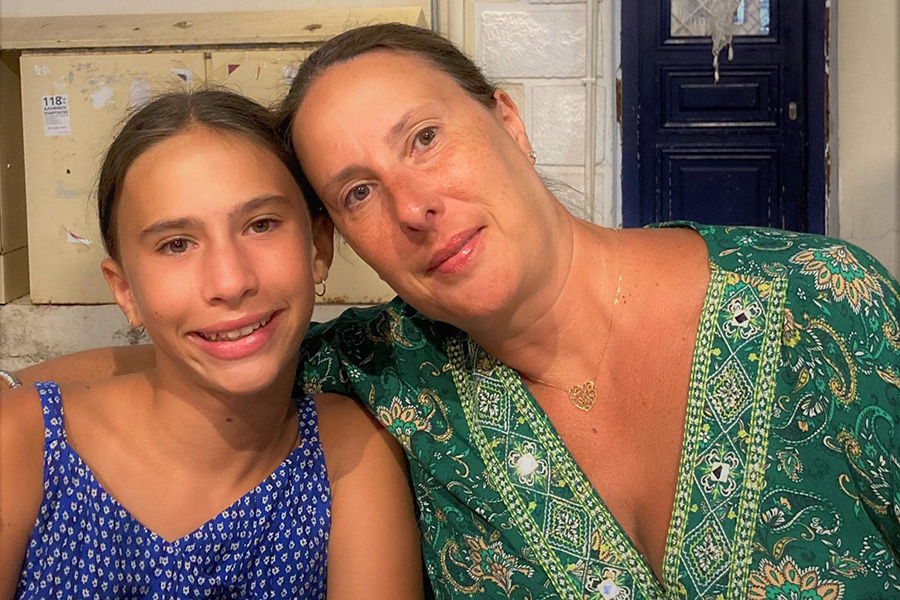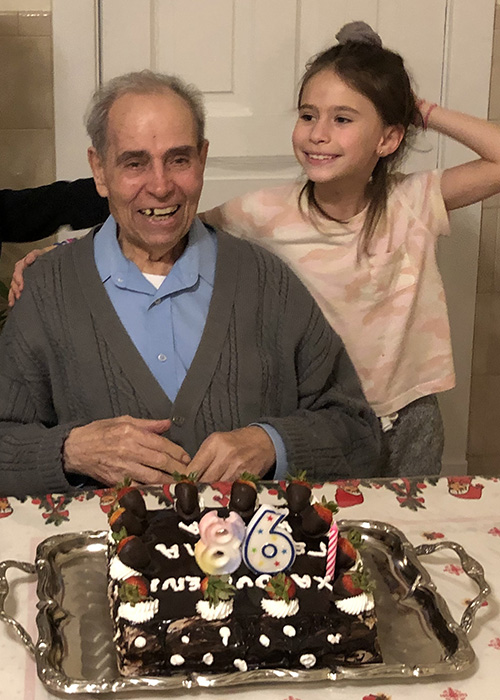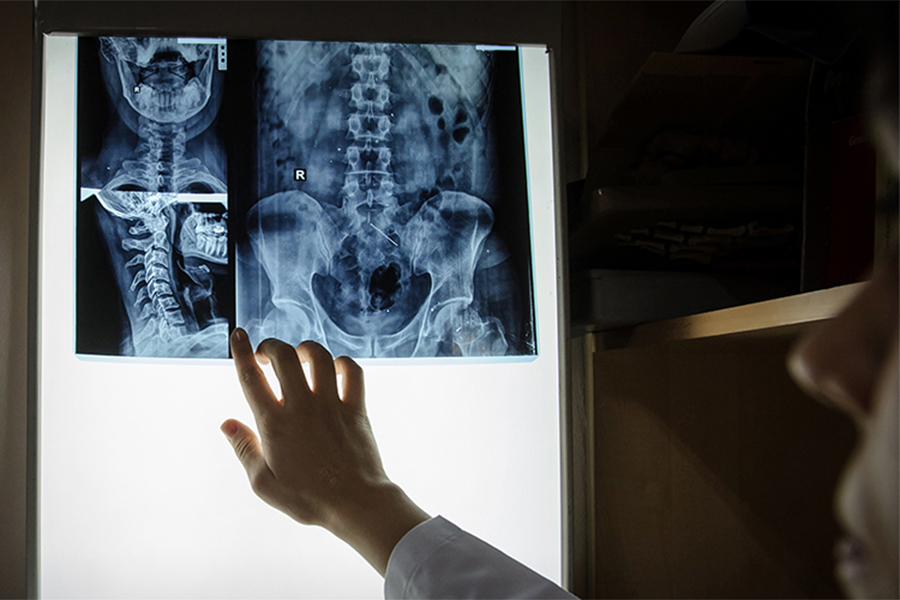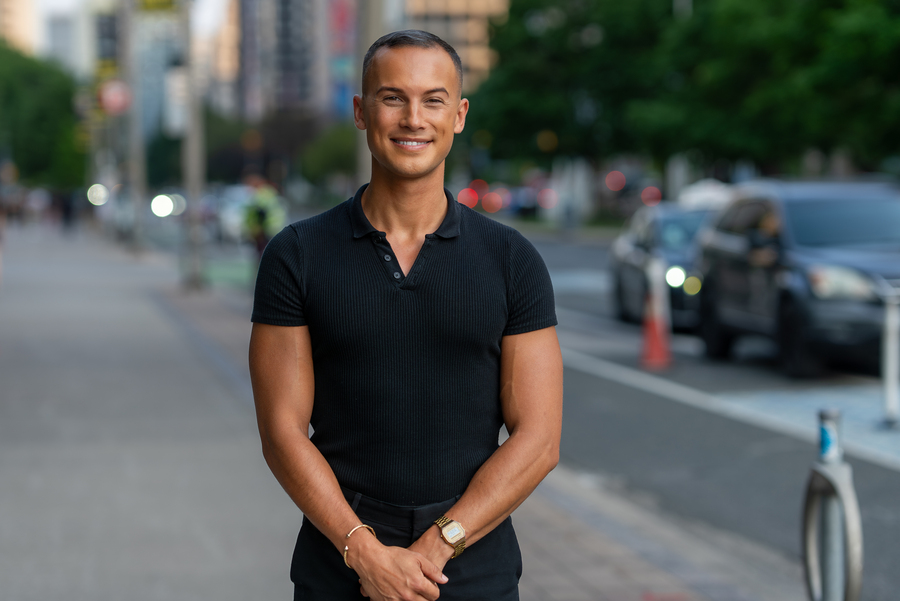
Watching her grandfather progress in his journey with Alzheimer’s inspired Demitra Katsigiorgis to do a presentation to her class about the disease, and why there isn’t a cure.
“Me and my family were really close to my Pappou Kosta, and it was so sad to watch him suffer,” says Demitra. “I was happy to have a chance to honour him with this project.”
Demitra’s elementary school takes part in the Project Giveback initiative, an educational curriculum offering students an opportunity to choose a charity of personal significance to them, and present about it to their classmates.
For the presentation she gave to her Grade 6 class, Demitra put together a slide show to teach her fellow students about Alzheimer’s disease and help them understand what it’s like for people who have a family member with the illness.
As part of her research, Demitra contacted the Krembil Brain Institute at UHN to learn more about Alzheimer’s and the latest research. The institute is home to one of the world’s largest and most comprehensive teams of physicians and scientists uniquely working hand-in-hand to prevent and confront problems of the brain and spine.
Demitra decided to include the Krembil Brain Institute in her presentation because she felt it was important to showcase the important work being done at the institute and throughout Canada, to try to find a cure for Alzheimer’s.
“My Pappou passed away last year and we miss him so much,” says Demitra, 12, who is now in Grade 7. “So, I was interested to find out about a cure, or new treatments, for people with Alzheimer’s.”

As part of Project Giveback, students are also encouraged to create an interactive component such as a game or activity that’s related to the chosen charity. Demitra chose a memory game.
“It was interesting because I always knew that Alzheimer’s affects your memory, but I didn’t know it also affects thinking skills, your ability to be yourself, to walk and talk, to get dressed in the morning, stuff like that,” she says.
Demitra still remembers the reaction from her classmates after her presentation.
“A bunch of other students in my class said that their grandparents also had Alzheimer’s, so they understood how hard it is to see someone you love forget you, and the other people around them,” says Demitra.
“It made me really emotional when they were talking about it, and proud that I’m making a difference with my presentation.”
Demitra’s parents, Niki Fotinos and Chris Katsigiorgis, are equally proud of the work and dedication she put into making this project impactful.
“It is incredible how one individual’s presentation can spark conversations in young minds about this disease,” says Niki, who works in the Management Office at Toronto General Hospital.
“Our hope is that with the research underway at the Krembil, a cure for Alzheimer’s will be found in our children’s lifetime.”




